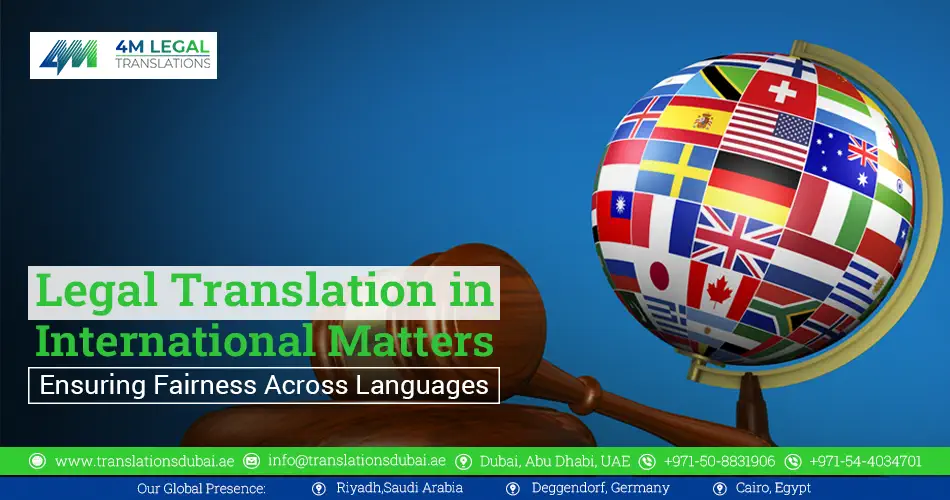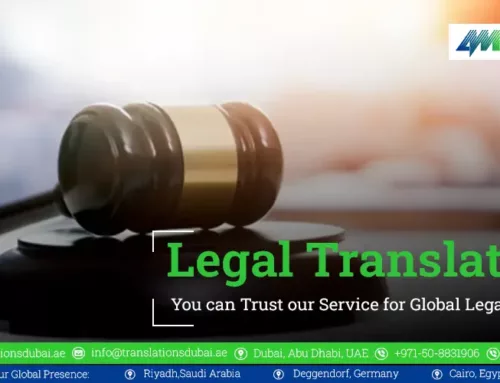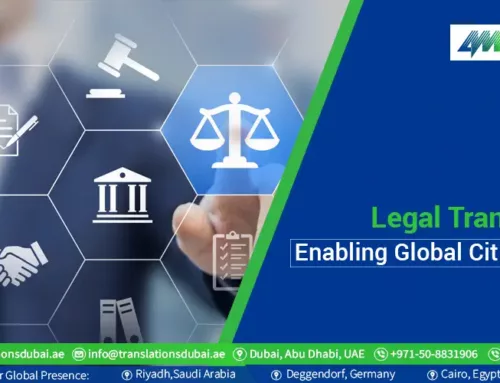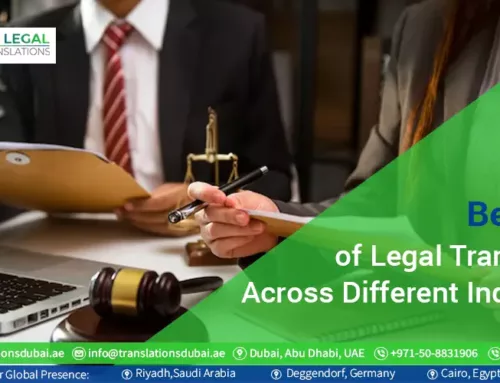As the world becomes increasingly interconnected, cross-border legal matters are becoming more common. However, ensuring fairness in international matters can be a challenge with language barriers and cultural differences. This is where accurate Legal Translation comes in.
This post will discuss the importance of translation in international cases and how it is crucial in ensuring equal access to justice for all parties involved. Let’s dive in and explore the vital role of 4M Translation in promoting fairness across languages.
Understanding Legal Translation
Translation is a specialized field that involves translating legal documents and texts from one language to another. It requires fluency in multiple languages and a deep understanding of the legal systems and terminology of both the source and target languages. The goal of translation is to accurately convey the original text’s meaning and intent while considering the linguistic and cultural nuances of both languages.
This ensures that all parties can fully understand and participate in legal proceedings, regardless of their language or cultural background. Legal and accurate translation is crucial in international matters where different languages and legal systems intersect, as it helps to bridge the gap and ensure fairness and equal access to justice for all parties involved.
Legal Translation in International Matters
As cross-border legal matters become more prevalent in our interconnected world, ensuring fairness and equal access to justice across different languages is essential. Legal and accurate translation is vital in bridging the language gap and ensuring all parties can fully understand and participate in legal proceedings.
Read More: Top 5 Reasons Why Our Legal and Accurate Translation Services Are Essential
Which International Matters that Rely on Legal Translation
International matters that rely on translation can vary widely. They can include:
1. International Trade Disputes:
Resolving conflicts arising from global commerce involves translating legal documents, contracts, and evidence to ensure clear communication among parties, promoting fairness in negotiations and legal proceedings.
2. Cross-Border Business Contracts:
Facilitating agreements between entities across different jurisdictions and translation in cross-border business contracts ensures mutual understanding and compliance with local laws and safeguards against misinterpretation, fostering fair and effective business relations.
3. Intellectual Property Cases:
In intellectual property disputes, legal and accurate translation plays a vital role in accurately conveying patent, trademark, and copyright information across languages, contributing to equitable resolution and protection of intellectual assets globally.
4. Immigration Proceedings:
Essential in immigration matters, translation ensures accurate and culturally sensitive communication in documentation such as visa applications and legal proceedings, promoting fairness and accessibility in the immigration process for individuals from different language backgrounds.
Any situation where individuals or businesses from different countries are involved in legal matters requires accurate and reliable translation to ensure fairness and equal access to justice. Legal Translation is essential for bridging language and cultural gaps, enabling all parties to understand and participate in legal proceedings fully, we provide accurate and reliable translation services; our 4M Translation service has expertise in ensuring fairness in all these international matters.
Strategies to Enhance accuracy and fairness in Legal Translation Across Languages
Several strategies can be implemented to enhance accuracy and fairness in translation across languages:
- First and foremost, translators must have a deep understanding of both the legal systems and languages involved. This includes staying up to date with legal terminology and industry-specific vocabulary.
- Additionally, collaborating with subject matter experts and conducting thorough research can help ensure the accuracy of translated texts. Using computer-assisted translation tools can also enhance consistency and efficiency.
- Finally, engaging in ongoing professional development and adhering to ethical standards can help maintain the highest quality and fairness in translation.
Certification and Professional Standards in Global Legal Translation
Certification and professional standards are crucial in ensuring the quality and reliability of translation services globally.
Certification
With the complex nature of legal matters and the importance of accurate translation, translators must undergo rigorous training and meet specific qualifications. Certification programs like those offered by reputable organizations allow translators to demonstrate their expertise and commitment to professional standards.
Professional Standards
These programs often involve language proficiency, legal knowledge, and translation skills assessments. Adhering to professional standards and obtaining certification helps ensure that translation services meet the highest standards of accuracy, fairness, and professionalism.
Best Practices for International Legal Translation
Certain best practices can ensure accuracy and fairness regarding international translation.
- First, it is crucial to work with experienced translators, such as 4M Translation, we have expertise in both legal and linguistic aspects of translation. Our experts are staying up-to-date with industry-specific vocabulary and terminology.
- Collaborating with our service can further enhance the accuracy of the translation, leveraging our expertise.






